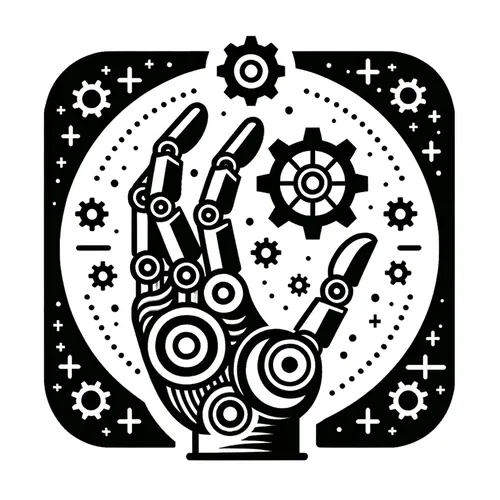Robots Gossip: AI Love Triangle Heats Up Factory Floors! RoboTech and Cognitive Systems Caught Canoodling?
- Author
- Quiet. Please
- Published
- Sun 16 Mar 2025
- Episode Link
- https://www.spreaker.com/episode/robots-gossip-ai-love-triangle-heats-up-factory-floors-robotech-and-cognitive-systems-caught-canoodling--64912698
This is you Robotics Industry Insider: AI & Automation News podcast.
As we enter mid-March 2025, the robotics and automation industry continues to evolve at a rapid pace. Recent breakthroughs in artificial intelligence have led to significant advancements in robotic capabilities, particularly in the realm of industrial automation. One notable development is the introduction of self-optimizing robots that can autonomously adjust their operations based on real-time data analysis, greatly enhancing efficiency and reducing downtime in manufacturing processes.
In a groundbreaking partnership announced last week, leading robotics firm RoboTech and AI powerhouse Cognitive Systems have joined forces to develop next-generation collaborative robots with advanced natural language processing abilities. This collaboration aims to create cobots that can seamlessly interact with human workers, understanding complex verbal instructions and providing detailed vocal feedback on tasks.
The integration of edge AI in robotics has also made significant strides, with new compact, high-performance chips enabling robots to process vast amounts of sensor data locally. This advancement has dramatically improved response times and decision-making capabilities in time-critical applications such as automated quality control in high-speed production lines.
A recent case study from the automotive sector showcases the practical impact of these technologies. A major car manufacturer implemented an AI-driven robotic assembly system that reduced production errors by 37% and increased overall efficiency by 22% compared to traditional automation methods. This success story underscores the growing importance of AI-enhanced robotics in maintaining competitiveness in global manufacturing.
Market data indicates strong growth in the industrial robotics sector, with global sales expected to reach $31 billion by the end of 2025, representing a 15% increase from the previous year. The collaborative robot segment is experiencing particularly rapid expansion, projected to grow at a CAGR of 30% over the next five years.
For industry professionals, staying abreast of these developments is crucial. Practical steps include investing in workforce training to adapt to AI-enhanced robotic systems, exploring pilot programs to test new technologies in specific production areas, and engaging with robotics vendors to understand how emerging solutions can address unique operational challenges.
Looking ahead, the convergence of AI and robotics is set to redefine industrial automation. We can expect to see more adaptive and intelligent robotic systems that can handle increasingly complex tasks, further blurring the lines between human and machine capabilities in manufacturing environments. As these technologies mature, they will likely lead to new paradigms in production efficiency, quality control, and workplace safety.
For more http://www.quietplease.ai
Get the best deals https://amzn.to/3ODvOta
